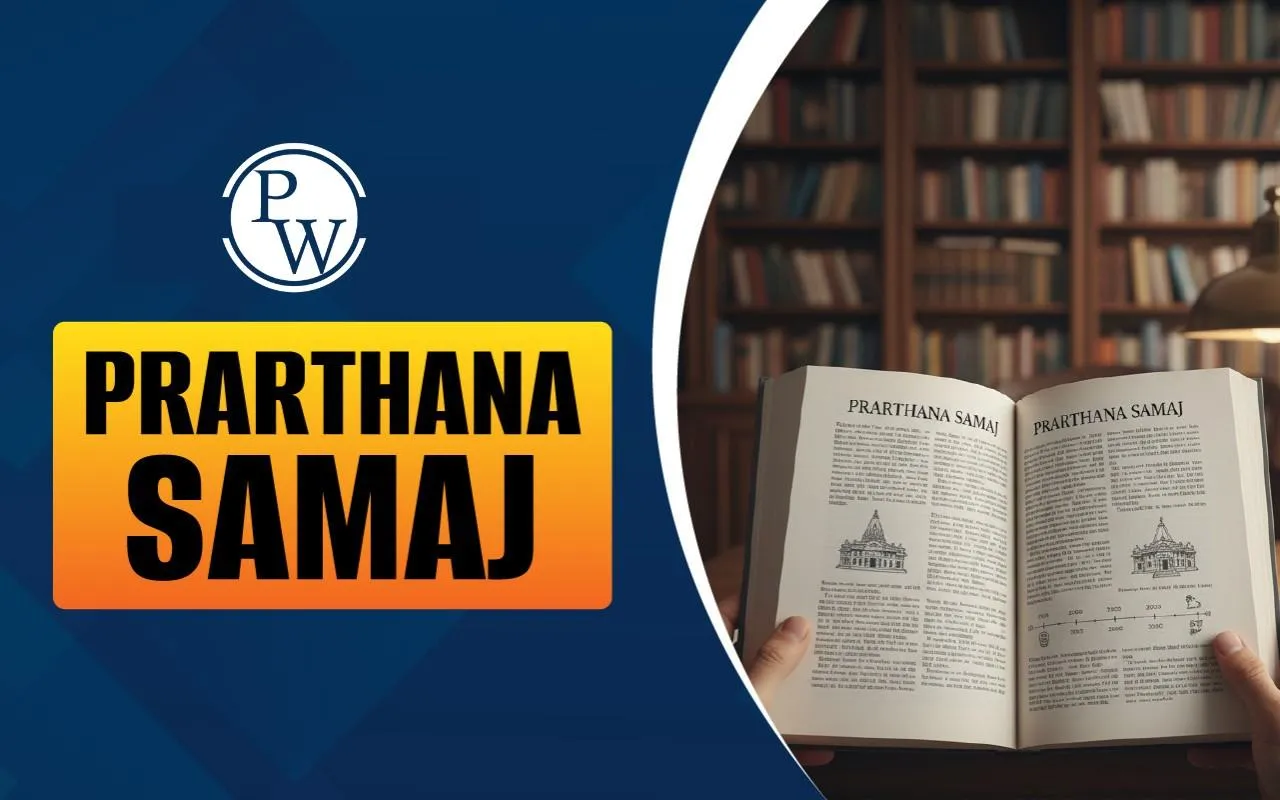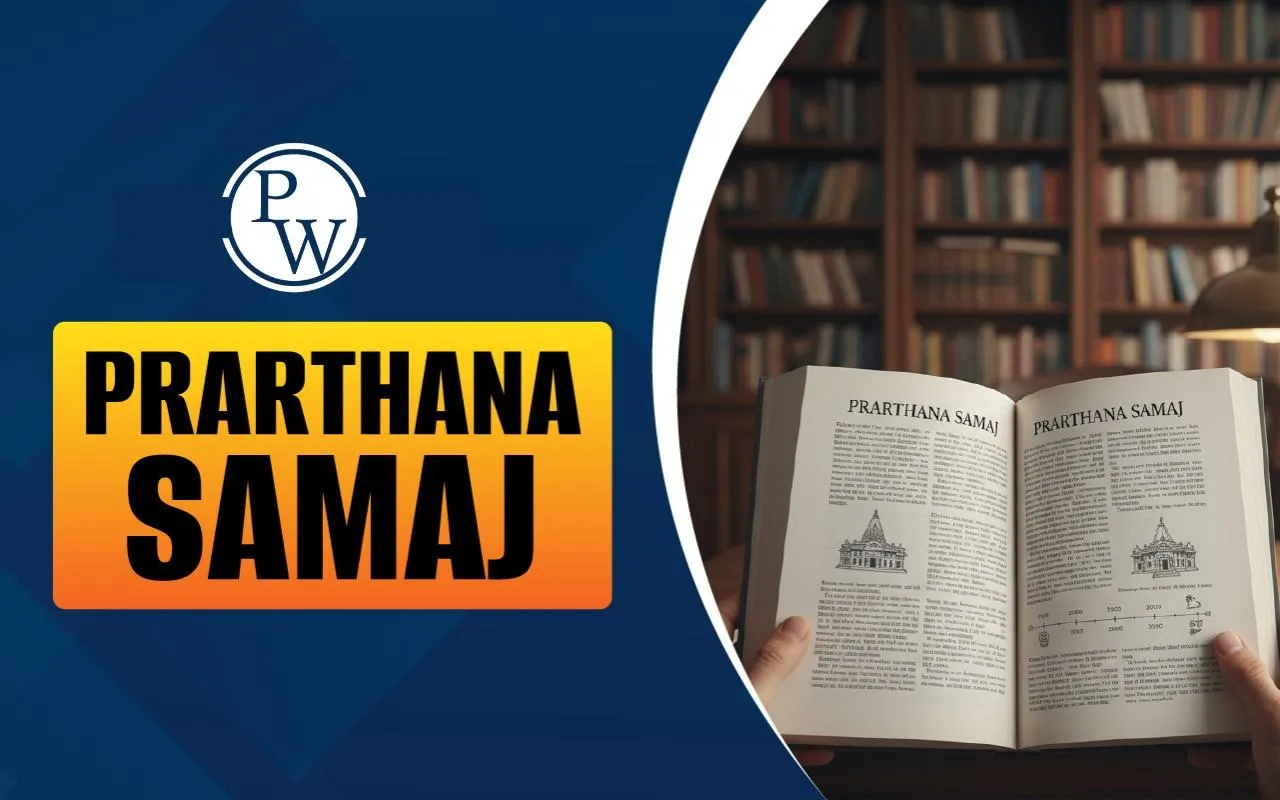

Prarthana Samaj was a major socio-religious reform movement in India. It was started in Bombay in 1867 under the leadership of Dr. Atmaram Pandurang. Equality, education, and rational thinking were stressed within the movement. The movement discarded harmful customs like untouchability, child marriage, and caste distinction. The Prarthana Samaj also promoted women's education and widow remarriage.
The Prarthana Samaj believes in one God and simple worship. It works to make society fair and just for all. The movement's ideas helped later reform groups and inspired future generations. Its legacy lives on and influences education, social justice, and religious thought in India to this day.
Prarthana Samaj
Prarthana Samaj aimed at reforming Indian society for the better. It was not mere religion; rather, it also included social justice and progress. The Prarthana Samaj believed in one God and worked to remove harmful traditions.
Origin and Historical Background About Prarthana Samaj
The Prarthana Samaj was started in Bombay in 1867 based on earlier reform movements such as the Brahmo Samaj. The movement came into being when people realized that something was seriously wrong in society and a change was required. Many of the old customs were proving to be mischievous, and the Prarthana Samaj wanted to set these right.
Founders and Key Leaders of Prarthana Samaj
Prarthana Samaj was founded by Dr. Atmaram Pandurang, a medical practitioner and social reformist. Other key figures included Mahadev Govind Ranade, R.G. Bhandarkar, and N.G. Chandavarkar. These prarthana samaj founders and leaders spread the ideas of Prarthana Samaj all over India.
|
Founders and Key Leaders of Prarthana Samaj |
|
|
Founder/Leader |
Role in Prarthana Samaj |
|
Atmaram Pandurang |
Founder, main leader |
|
Mahadev Govind Ranade |
Social reformer, thinker |
|
R.G. Bhandarkar |
Scholar, historian |
|
N.G. Chandavarkar |
Social reformer, leader |
Ideologies and Principles of Prarthana Samaj
Prarthna Samaj had clear views on the functioning of society. It believed in one God, equality, and education. It rejected old rituals and superstitions. It wanted people to use their own thinking faculty and treat others fairly.
Monotheism and Rational Worship
Prarthana Samaj believed there was only one God. It did not support idol worship or complex rituals. The group encouraged people to pray and think rationally. It believed that faith should be straightforward and honest.
Social Equality and Reform
Prarthana Samaj demanded equality among all individuals, thus opposing the caste system and untouchability. The movement was concerned with uplifting women and the lower castes. It believed in the principle of everyone having equal rights.
Emphasis on Education and Moral Conduct
Prarthana Samaj had given great importance to education. The group set up schools for girls and supported learning for all. It even taught people to be honest and kind. The Prarthana Samaj believed that good education and moral values would make society better.
Major Social Reforms Led by Prarthana Samaj
Prarthana Samaj involved itself with a host of social issues, which aimed to eradicate injurious customs and attempted to elevate the common people. The movement concentrated on four major areas of reform.
Abolition of Untouchability and Caste System
Prarthana Samaj strongly opposed untouchability and the caste system. It believed in treating all people respectfully. The movement worked for the elimination of discrimination and the promotion of equality.
Women's Education and Widow Remarriage
Prarthana Samaj supported education for women. It set up schools for girls and encouraged them to learn. The group supported widow remarriage. The group believed that widows should not be forced to live alone.
Campaign Against Child Marriage
Child marriage was a serious social issue in India, and the Prarthana Samaj fought against it. The movement aimed at increasing the marriageable age and safeguarding the rights of children on the basis that they should be allowed to grow up before marriage.
Impact and Legacy of Prarthana Samaj
The Prarthana Samaj left an indelible mark upon Indian society. Its ideas molded future reform movements. The movement also contributed to the rise of Indian nationalism.
Influence on Later Reform Movements
Prarthana Samaj was an inspiration to many later reform groups. Its stress on equality and education became a model that was emulated by others, while the movement helped create a more open and progressive society.
Contributions to Indian Nationalism
Prarthana Samaj supported the concept of united India. All the Indians should work together as per its belief. The movement helped in building up a sense of national pride and unity.
Role in Promoting Social Justice
The Prarthana Samaj strove hard to uphold social justice. It fought for women's rights, lower castes, and children. The movement helped in making society more equitable and just.
Prarthana Samaj in Contemporary Context
The teachings of the Prarthana Samaj are still upheld today. Many of its teachings are relevant in modern India. Some of its legacies can be seen in schools and social groups, and in government policies.
Continuing Relevance of its Teachings
Equality, education, and rational thinking are still the focuses of the Prarthana Samaj. It serves as a guide for making proper decisions and treating others correctly. The schools and social programs implement many of the movement's ideas.
Preservation of Prarthana Samaj Heritage
The history of Prarthana Samaj is present in books, museums, and old buildings. Many people visit these places in order to learn about the movement. The heritage of the Prarthana Samaj is protected and celebrated.
Prarthana Samaj performed an important role in shaping modern India. The ideas of the Samaj continue to inspire people to work for a better society. The movement has left behind a rich legacy of belief in reform and progress.
